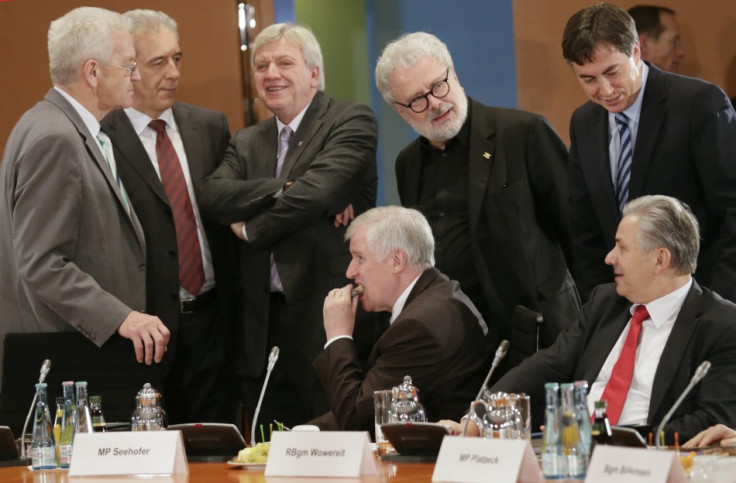Germany Moving towards Ban on Far-Right NPD
Heads of Germany's 16 federal states approve bid to outlaw far-right party - but Chancellor Merkel cautious

Germany's political elite has taken another step towards banning the far-right National Democratic Party (NPD).
Following recommendations by regional interior ministers, the heads of the country's 16 federal states have agreed to push ahead with a bid to ban the party.
The upper house, the Bundesrat, will vote on 14 December on whether to bring a lawsuit against the party before the constitutional court in Karlsruhe.
Talks to outlaw the NPD gained ground in 2011 after a report by the public broadcaster ARD suggested that the party may have formed close links with violent gangs.
While it has not been established whether the NPD was linked to the National Socialist Underground (NSU), believed to be responsible for a series of terrorist bombings and ethnic killings over the past decade, the report showed clear evidence that the party had ties with rightwing underground groups such as Sturm 34, Skinheads Sächsische Schweiz and Thüringer Heimatschutz.
Previous attempts to ban the NPD - in 2003 - failed because of lack of evidence and because witnesses were exposed as intelligence agency informants.
The German intelligence agency has more than 130 active informants in the NPD, who risk exposure if the government moves to ban the party.
Chancellor Angela Merkel said she wanted to be sure that any case was watertight. Another failure might help legitimise the NPD in the eyes of some voters, she said.
But pushing the NPD underground is seen by some critics as unwise.
The Bundesrat does not need the backing of the government. The states have compiled about 2,600 pages of evidence against the NPD. They have to prove that the NPD has "an actively belligerent, aggressive stance and aims to damage or abolish democracy". The party gets €1m in taxpayer money every year.
Germany's domestic intelligence service has described the NPD as "racist, anti-Semitic and revisionist".
The party has seats in two state assemblies in eastern Germany.
© Copyright IBTimes 2025. All rights reserved.






















